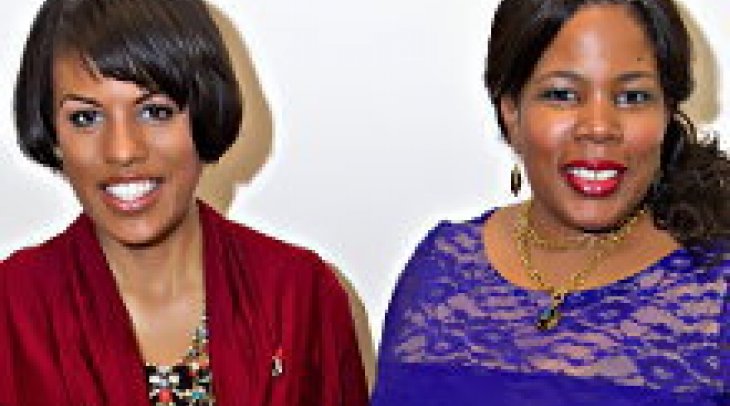Black History Month
Friday Feb 7th, 2014

Originally posted in The Rawlings-Blake Review, Issue #189
February is Black History Month, and this year, there is much to celebrate! 2014 marks the 50th anniversary of the Civil Rights Act and the 150th anniversary of emancipation in Maryland. This year we have an amazing opportunity to recognize the Marylanders who fought for freedom from slavery and their descendants, who continue to struggle and triumph. I hope that, throughout the month, you will take the opportunity to seek out these stories.
Stories like that of Anne Brown (1912 – 2009), the native daughter of Baltimore who originated the role of Bess in George Gershwin’s Porgy & Bess. Earlier today, we were privileged to hear Brown’s story, presented through story and song by award-winning operatic recitalist, recording artist, actress, and author Bridgette “Bri” Cooper. Ms. Cooper has been named one of the Voices of the New Millennium, and was honored to be the first classical singer featured in Black Enterprise Magazine.
This performance was part of It’s More Than History!—a lunch & learn lecture series presented by the Baltimore National Heritage Area in conjunction with my office. In Commemoration of Black History Month, the February series of It’s More Than History! honors Baltimore’s African American community and contributions to music and the arts. Join us in City Hall at noon on February 21 for the next lecture in the series, which tells the story of Ellis Larkins, Baltimore’s “poet of the piano.” Events like this are taking place throughout the city during the whole month.
Last Saturday, I was pleased to join Congressman Elijah Cummings and featured guest Congressman John Lewis for the Enoch Pratt Free Library’s Black History Month kickoff, its 26th annual Booklovers’ Breakfast. Congressman Lewis—a U.S. Representative from Georgia—has spent his life honoring our nation’s African American heritage and fighting for equality and civil rights. In fact, he is the last surviving member of the “Big Six” leaders of the Civil Rights Movement. Hundreds of residents from book clubs across Baltimore attended the event, and it was an exciting reminder that great deeds are not confined to just history books.
Black History Month is also an opportunity for us to mobilize to overcome the challenges that are still far too prevalent in our communities of color. Today I joined with Baltimore Health Commissioner Dr. Oxiris Barbot, Councilman Nick Mosby, and members of the community to recognize National Black HIV/AIDS Awareness Day. In Baltimore City, African Americans account for 85% of all diagnosed HIV/AIDS cases. African Americans face the most severe HIV/AIDS burden of any ethnic group in the nation. This is an epidemic that disproportionately affects our black communities, and we must take action to stem the tide of new infections.
The stigma, fear, and silence associated with HIV/AIDS only serve to increase the risk of infection and decrease willingness to know one’s status. In Baltimore, no one should suffer in silence. Thanks to the leadership of the Baltimore City Health Department and partners like Total Healthcare, prevention efforts have helped to maintain stability in the overall level of HIV infections among African Americans for more than a decade, but we must pull together as a community. Get educated. Get tested. Get involved. And if you are currently living with HIV/AIDS, don’t be afraid or ashamed to get treated.
As we celebrate the heritage of our wonderfully diverse nation, let us bear in mind that our collective Baltimore story is not finished. The stories of our forebears that are recounted throughout Black History Month are a beginning. Through our continued commitment, passion, and courage, we will have many more stories to tell in years to come.